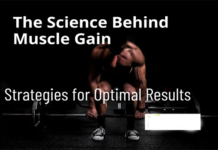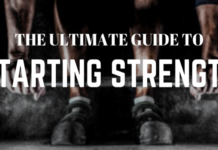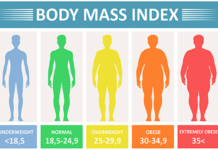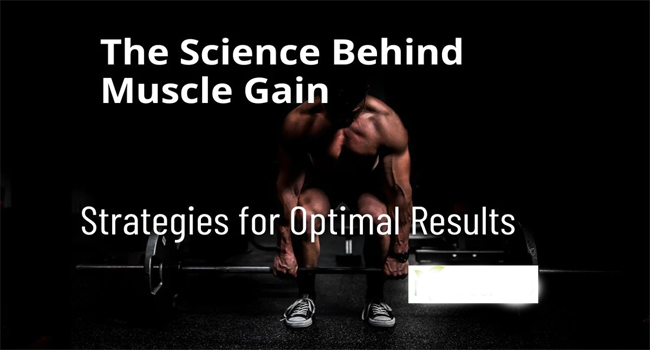Introduction:
In pursuing athletic excellence, athletes constantly search for methods to optimize their overall performance and advantage over an aggressive side. Alongside rigorous education and proper vitamins, nutritional supplements have become increasingly popular amongst athletes looking to improve energy, persistence, restoration, and typical athletic performance. However, amidst the full array of dietary supplements flooding the marketplace, discerning what works may take time and effort. This article delves into the clinical proof behind numerous supplements touted for boosting athletic performance, supplying insights into their efficacy, protection, and practical implications.
Creatine:
Creatine is one of the most notably researched and extensively used dietary supplements among athletes. It is a certainly taking place compound discovered in meat and fish, in addition to being synthesized in the human frame. Creatine supplementation has been proven to boost phosphocreatine stores in muscle mass, beautifying the manufacturing of adenosine triphosphate (ATP), the primary power foreign money of cells. Numerous studies have established that creatine supplementation can enhance energy, strength, and muscle tissues, specifically during excessive-intensity, brief-period sports like sprinting and weightlifting. Additionally, creatine can be a resource in muscle restoration and decrease fatigue through repetitive bouts of exercise. Its safety profile is appropriately set up, with few pronounced adverse outcomes when used inside endorsed doses.
Caffeine:
Caffeine is a stimulant in coffee, tea, power liquids, and specific dietary supplements. It is understood to boost alertness, reduce perceived exertion, and enhance persistence performance. Caffeine blocks adenosine receptors in the mind, lowering fatigue and improving intellectual awareness. Research shows that slight doses of caffeine (3-6 mg in keeping with a kilogram of frame weight) fed on before a workout can decorate persistence and overall performance, especially in activities lasting 30 minutes to two hours. However, personal responses to caffeine can vary, with a few athletes experiencing jitteriness, gastrointestinal discomfort, or disrupted sleep. Therefore, it’s critical to test caffeine intake throughout school to decide the most effective doses and timing for a person’s tolerance.
Beta-Alanine:
Beta-alanine is a non-crucial amino acid that combines with histidine to form carnosine, a dipeptide in skeletal muscles. Carnosine acts as an intracellular buffer, supporting the modification of pH degrees at some stage in high-depth exercise and delaying the onset of fatigue. Supplementation with beta-alanine has been shown to boost muscle carnosine stages, particularly in rapid-twitch muscle fibres. This can cause improved overall performance in sports requiring repeated excessive-depth efforts, which include sprinting and interval schooling. While beta-alanine can also cause an innocent tingling sensation called paresthesia, it is usually well-tolerated and secure for most people.
Whey Protein:
Whey protein is a tremendous protein derived from milk at some stage in cheese-making. It is rich in vital amino acids, especially leucine, which are crucial in stimulating muscle protein synthesis. Consuming whey protein following a workout has been proven to decorate muscle recovery and sell muscle increase. Additionally, whey protein might also assist in holding lean muscles at some stage in calorie restriction or extreme education intervals. While whole meals resources of protein are generally endorsed, whey protein dietary supplements offer comfort and rapid absorption, making them an attractive option for athletes aiming to satisfy their protein desires.
Branch-Chain Amino Acids (BCAAs):
BCAAs, including isoleucine and valine, are essential amino acids constructing blocks ks for protein synthesis and electricity production. They are particularly crucial during extended exercise, as muscle glycogen shops deplete and protein breakdown increases. Supplementing with BCAAs is proposed to lessen muscle discomfort, save muscle breakdown, and aid restoration following severe exercise. However, the proof regarding their efficacy in enhancing athletic overall performance is mixed. While some studies advise capacity blessings, others have found no great results on overall performance or muscle restoration. Thus, applying BCAA supplementation may vary depending on individual training dreams and nutritional behaviour.
Fish Oil:
Fish oil supplements contain omega-3 fatty acids, specifically eicosapentaenoic acid (EPA) and docosahexaenoic acid (DHA). These fatty acids have anti-inflammatory properties and play critical roles in cardiovascular fitness, mind features, and immune function. While the primary blessings of fish oil supplementation lie in cardiovascular and essential health, emerging proof also indicates capability blessings for athletes. Omega-three fatty acids may help reduce exercise-caused irritation, enhance joint fitness, and decorate blood waft to operating muscle tissues. However, additional studies are needed to elucidate the precise consequences of fish oil supplementation on athletic performance and healing.
Nitric Oxide Precursors:
Nitric oxide (NO) is a vasodilator that relaxes blood vessels, increasing blood go with flow and oxygen delivery to operating muscle groups. Several dietary supplements, along with beetroot juice, citrulline, and arginine, beautify NO production through numerous mechanisms. Beetroot juice, in particular, is rich in dietary nitrates, which the body converts into nitric oxide. Consuming beetroot juice or nitrate supplements has been shown to enhance overall workout performance, particularly notably in staying power sports, by strengthening oxygen utilization and lowering the oxygen cost of exercise. Similarly, citrulline and arginine are amino acids that are concerned with NO manufacturing. Supplementing with citrulline or arginine might also decorate blood flow, delay fatigue, and enhance workout tolerance, specifically for the duration of excessive-intensity efforts. However, the outcomes of these supplements on athletic overall performance can be variable, with male or female responses influenced by elements including dosage, timing, and baseline nitric oxide stages.
Adaptogens:
Adaptogens are a class of herbs and mushrooms that are purported to assist the body in adapting to strain, enhance electricity degrees, and decorate the body nicely. Examples of adaptogens include ashwagandha, rhodiola rosea, and ginseng. Research shows that adaptogens may benefit athletes by modulating the body’s strain reaction, reducing fatigue, and improving recovery. For example, ashwagandha supplementation has been proven to grow electricity, energy, and muscle mass in resistance-skilled people. Rhodiola rosea enhances persistence and overall performance and decreases perceived exertion during prolonged exercise. However, the evidence supporting the efficacy of adaptogens for athletic performance still needs to be improved, and extra research is required to elucidate their mechanisms of movement and most excellent dosing techniques. Additionally, individual responses to adaptogens can range, with some athletes experiencing little to no advantage. Therefore, while adaptogens maintain promise as herbal dietary supplements for supporting athletic overall performance, further research is warranted to verify their efficacy and safety.
Conclusion:
In conclusion, while dietary supplements can enhance athletic performance, their efficacy relies upon different factors, together with individual reactions, dosage, timing, and typical vitamins. Creatine, caffeine, beta-alanine, whey protein, and sure nitric oxide precursors have demonstrated promising outcomes in terms of energy, staying power, healing, and overall athletic performance. However, athletes must approach supplementation judiciously, prioritizing complete foods, proper education, and restorative practices. Additionally, consulting with a certified healthcare professional or sports nutritionist can assist athletes in making informed selections concerning complement use, ensuring protection, efficacy, and compliance with anti-doping guidelines. Ultimately, at the same time as dietary supplements can supplement a well-rounded education software, they must be viewed as just one piece of the puzzle in unlocking athletic capacity. By integrating proof-based supplementation strategies with disciplined schooling, innovative vitamins, and adequate recovery, athletes can maximize their overall performance and attain their athletic dreams.






















